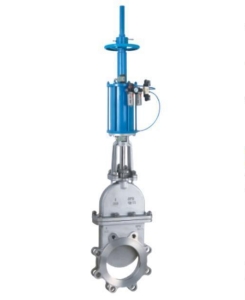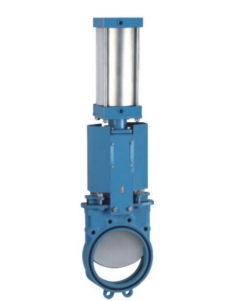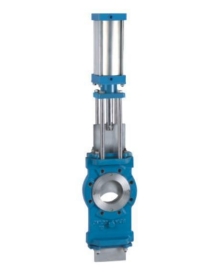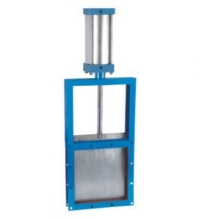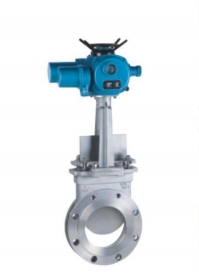
Due to its ability to precisely control flow, needle valves are crucial components utilized throughout various industries. The closing mechanism of these valves is a tapered pin that resembles a needle. They control the flow of fluids and gases in processes like dosing, sampling, and metering. To accurately prevent discharge, needle valves spin a threaded stem, which shifts the pin up or down to change the orifice opening. To meet diverse installation needs, they are available in various varieties, including straight, angled, and multi-port designs. The advantages of needle valves include their capacity to withstand high temperatures and pressures and their compact size, durability, and leak-tight functioning.
What is a Needle Valve?
A valve created with accuracy in mind is a needle valve. It has a narrow stem with an adjustable point tip that enables precise regulation and control of the flow of fluids through it. Numerous ports usually run the length of the stem, allowing for gentle pressure rises and fall. Because of this, needle valves are perfect for applications requiring long-term, precise pressure control.
Needle Valves: Uses
Several industrial uses for needle valves include water systems, oil rigs, chemical factories, and office buildings. They are frequently used to regulate the flow of liquids, including gasoline, through pipes and hoses that connect to mechanical parts like pumps and motors. Additionally, they can control the flow of different gases, such as air or natural gas, as they move from one area of an industrial plant to another.
How Do Needle Valves Work?
The basic idea behind needle valves is that they control fluid flow by adjusting the region left open for passage through them. More space will be accessible for passage when the stem of a needle valve is fully opened (by rotating it clockwise); in contrast, less space will be open for passage (producing less pressure) when the stem is rotated counter-clockwise. The velocity of fluid flow can be accurately regulated by gradually or abruptly changing the location of this stem over time. This makes them perfect for applications requiring gradual regulation over time or quick adjustments to unexpected pressure fluctuations without causing harm to nearby parts or equipment.

Needle Valves Types
Depending on your application requirements, there are various kinds of needle valves on the market today, including manual valves (sometimes called hand valves), solenoid-powered needle valves, pneumatically operated needle valves, gas-operated needle valves, and electrically operated needle valves. Automated versions offer greater convenience but are more expensive upfront because they need additional hardware components and wiring setup before use. Manual versions are typically more straightforward and less costly than automated versions but require manual intervention whenever you need to adjust pressure settings.
Needle Valve Advantages
1. Precise Flow Control: Due to their finely threaded stem and tapered aperture, needle valves provide excellent flow control. Since the flow rate can be precisely controlled, they are the best choice for applications that need precise and gradual modifications.
2. High Pressure and Temperature Resistance: Usually, needle valves are made to endure high temperatures and pressures. They are frequently employed in fields where the fluids or gases are subjected to harsh circumstances, such as oil and gas, chemical processing, and power generation.
3. Leak Tightness: Unlike other valve types, needle valves offer a more secure seal because of their precise threading and capacity for slight changes. Because of their reliable shut-off and reduced leakage, they are appropriate for applications where leak tightness is crucial.
4. Compact Size: Unlike other valves, needle valves are typically small and light. Because of this, they are appropriate for installations with restricted space or where weight is a factor, such as in aircraft and automotive applications.
5. Durability and Longevity: The durable and corrosion-resistant materials stainless steel and brass are frequently used to construct needle valves. This ensures a longer service life and qualifies them for usage in severe settings.
6. Versatility: To provide a wide range of installation and connecting choices, needle valves are offered in various layouts, including straight, angled, and multi-port designs. Numerous industries, including oil and gas, chemical, pharmaceutical, laboratory, and manufacturing, can use them.
7. Easy Operation: For simple manual operation, needle valves generally have a handwheel or a handle. They are user-friendly and practical for short changes or shut-off actions due to their ease of operation.
8. Fine Regulation of Fluids: Needle valves are frequently employed in applications that need precision regulation of fluids, such as flow meters, pressure gauges, calibration systems, and analytical equipment, due to their ability to make accurate adjustments.
Needle Valve Applications
Due to their unique qualities, needle valves are used in many sectors. Here are a few typical uses for needle valves across many industries:
Oil and Gas Industry: In the oil and gas business, needle valves are frequently used for tasks like metering, sampling, and controlling the flow of gases and liquids in pipelines, wellheads, and production systems. They are exceptionally well suited to high-temperature and high-pressure situations.
Chemical Processing: Chemical plants use needle valves to regulate the flow of dangerous and corrosive fluids. They are frequently used in chemical dosing, sampling, and flow control in reactors, storage tanks, and pipelines.
Pharmaceutical Industry: In the pharmaceutical sector, needle valves precisely control flow rates during the manufacturing process. They are utilized in research instruments, laboratory equipment, and applications like filling and dispensing fluids.
Laboratory and Analytical Instruments: Analytical equipment and laboratory environments frequently use needle valves. They are essential for regulating the flow of gases and liquids in mass spectrometers, gas analyzers, chromatography systems, and other precise devices.
Aerospace and Aviation: Since they are small and can withstand high pressures, needle valves are used in aerospace and aviation applications. They are used to control flow and pressure in aircraft fuel systems, hydraulic systems, and pneumatic systems.
Power Generation: In power plants, needle valves regulate the flow of steam, water, and other fluids in various systems. Where precise control and shut-off capabilities are needed, such as in cooling systems, steam turbines, and boilers, they are frequently encountered.
Manufacturing and Industrial Processes: In the manufacturing sector, needle valves are utilized for tasks like dosing, pressure relief, and process fluid management. They are used in textiles, pulp and paper, food and beverage, and automobiles.
Instrumentation and Control Systems: Instrumentation and control systems need needle valves as essential parts. They are used in flow meters, control panels, pressure gauges, and other designs requiring precise flow control and measurement.
Water Treatment and Desalination: Needle valves are used in water treatment and desalination facilities. They are used in procedures like chemical dosing, pH control, and flow regulation in pipelines and treatment systems.
Research and Development: Applications for needle valves in research and development include experimental settings, investigations of fluid dynamics, and precision measuring systems. They offer precise flow rate control and adjustment for various research projects.

Conclusion
In summary, needle valves are essential in many sectors because they offer accurate flow control and dependable shut-off capabilities. Because of their tapered pin design, these valves provide precise fluid and gas flow rate adjustment. They are used in laboratory research, chemical processing, pharmaceuticals, and oil and gas fields. To change the orifice opening, needle valves rotate a threaded stem. They are available in several varieties to meet various installation needs. The advantages of needle valves include their resistance to high temperatures and pressures, ability to operate without leaks, small size, and longevity. Overall, needle valves are essential parts that help manage fluids effectively and under control in various industrial situations.


